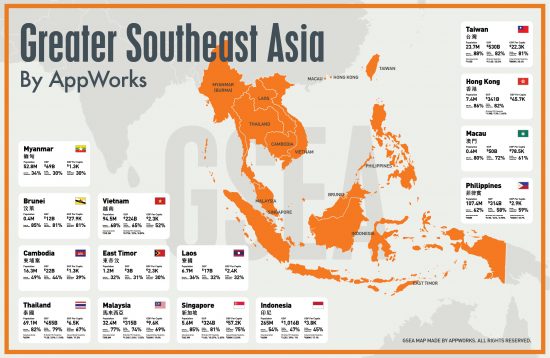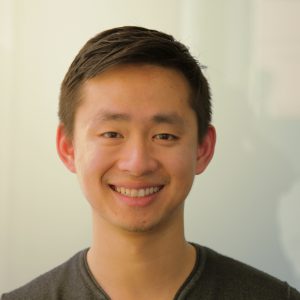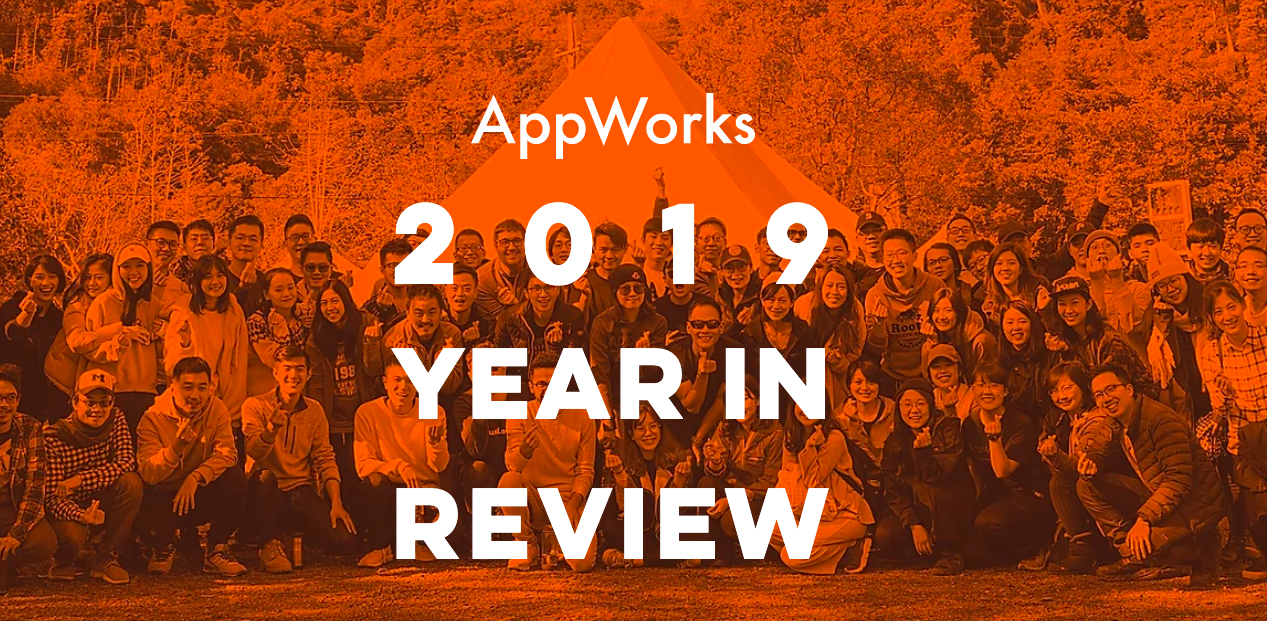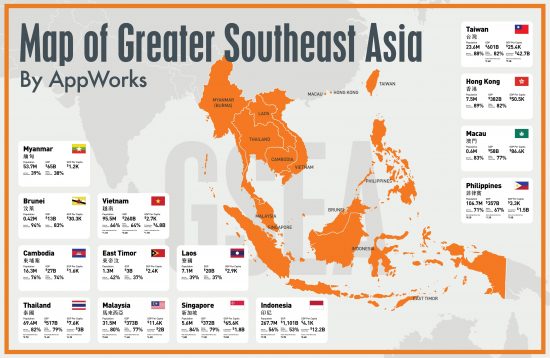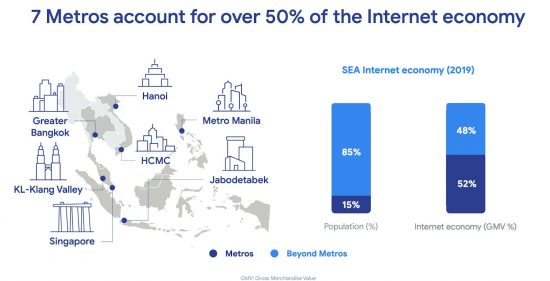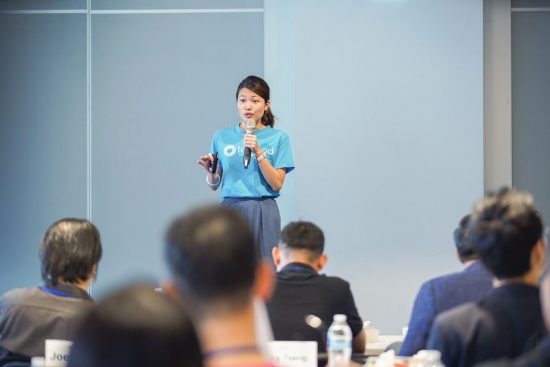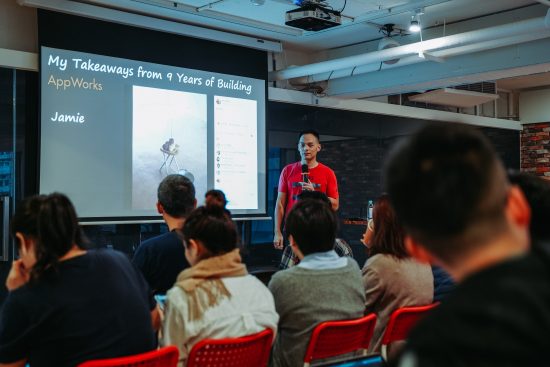
Founded in 2010, AppWorks Accelerator is a startup community created by founders, for founders. We are committed to fostering the next generation of entrepreneurs in Greater Southeast Asia and to accelerating the region’s transition into the digital era.
Every six months, we take in startups operating on the frontiers of AI / IoT, Blockchain / DeFi, and Southeast Asia, equipping founders spanning all walks of life with the necessary resources, mentorship, and guidance to get their ventures off the ground. Since our establishment 10 years ago, we’ve graduated 21 batches, with the entire AppWorks Ecosystem now encompassing 395 active teams and 1,331 founders. Collectively, they generate an annual turnover of US$8B and boast an aggregate valuation of US$11B, creating the strongest founder community of its kind in Greater Southeast Asia.
As an international founder we know there are many considerations when applying to an accelerator. That’s why we’ve created an FAQ page to help you decide whether or not AppWorks is suitable for your startup.
As of Nov 4, AppWorks Accelerator #22 is open for applications. You can find important information about the Accelerator experience on our main page.
The FAQs
1. “What do I need to know before joining an accelerator in Taiwan during COVID? What is AppWorks doing to help founders make the most out of the accelerator before it’s completely safe to travel and congregate? How are you helping founders deal with the impact from the pandemic?”
The world has seen nothing like the COVID-19 pandemic, and we can confidently say that no founder we know had this on their disaster mitigation plans. But the experience of being a founder is all about learning and adaptation, even when things look dire. We are here to support you do just that, no matter the circumstances.
To make sure founders accepted to AW#22 will have the benefits of connecting to your batchmates, to mentors, to markets, and to essential knowledge and services, we’ve designed a hybrid program that serves both local Taiwan-based founders as well as international founders abroad that cannot physically enter Taiwan.
Currently, up to six hours of online sessions per week are provided, ranging from office hours with our partners to coaching sessions and workshops with founders from all over GSEA. Such meetings include founder mentoring sessions with veterans of the technology industry who have launched startups from zero to one, and even listed several IPOs.
Finding connections with supply chain partners and other potential business partners will not be a problem, either, since we will help to connect you to these resources through virtual introductions.
In addition to providing these and other aspects of our curriculum online, we will continue to make services such as cloud resources and other perks from our technology partners available, as we have been doing for the past ten years. There is no obligation to sit in the physical accelerator space in order to take advantage of them.
Finally, we will continue to monitor visa and travel restrictions in a timely way and update you with new information we learn during the application process.
The moment it becomes easier to physically travel to Taipei, you and the other AW#22 founders will be the first to know. And rest assured, with our Demo Day plans 100% in planning and execution modes, we will make sure it goes ahead, and you’ll get to meet hundreds of investors / executives in person who can make a positive impact on your founder journey.
For now, here are some standard questions that we see every year. You may wish to read these FAQs as you work on filling out the application to determine if the accelerator is right for your founder journey.
2. “How can AppWorks Accelerator help a founder? Why join an accelerator?”
a. The largest community of entrepreneurs in Greater Southeast Asia
Starting a business is lonely. Most of your family and friends will not understand what you are going through. That’s why it’s critical to put yourself in an environment with like-minded peers, to share the ups and downs, and provide mutual support through any setbacks and challenges. In AppWork Accelerator, there will be 50 – 60 batchmates in the trenches alongside you. Additionally, you’ll have an opportunity to connect with hundreds of AppWorks alumni at various gatherings, many of whom have passed through the 0-1 stage and can help you shortcut potential hurdles through sharing their own experiences.
b. 100+ mentors with rich entrepreneurial experience
The AppWorks Ecosystem has over 100 mentors that have offered up their time to guide young entrepreneurs, which you’ll meet through events like Mentor Day and Mentor office hours. Some will help you in strategy, some will help open doors to new connections, some will become your business partner, and a select few will serve as your lifelong mentor, guiding you every step along your founder journey with their own life experiences, offering advice in times of need, but also celebrating with you in times of joy.
c. Masters and Partners
In the early days of your founder journey, you’ll often be strapped for time and resources, leaving you with little capacity or even experience to handle certain tasks in the course of building your startup. Our in-house Master team consists of 8 subject-matter experts who can assist founders in functional areas such as PR, talent recruitment, finance/accounting, legal, investor relations, alumni relations, design, and workspace management. With average experience of more than 10 years, our Master team can help early-stage founders maximize their time and effort without compromising any additional resources.
In addition to our Master team, one-on-one office hours are arranged with each of our five AppWorks Partners each month. They can advise in all aspects of your startup including business model ideation, analyzing market dynamics, launching new products/services, and building and hiring new teams. Tapping into experiences from their own founder journeys, our Partners can quickly provide targeted advice to help you clarify problem statements and alleviate bottlenecks.
d. Connections in SEA
Southeast Asia has become one of Taiwan’s primary markets when internationalizing. Penetrating these markets on your own is hard enough as it is. In AppWorks Accelerator, on average more than 60% of the teams in each batch come from outside of Taiwan, including Indonesia, Singapore, Hong Kong, Vietnam, Philippines, Malaysia, Thailand, among others. At AppWorks, we very much maintain a “pay-it-forward” mentality, whereby many of your fellow batchmates and alumni will serve as your eyes and ears on the ground, facilitate warm introductions to key contacts, and open doors for your market entry just because you are a part of the community. In addition, AppWorks has established solid relations with local startup communities and investors across the region, giving you more possibilities for a soft landing.
e. Other resources
After joining AppWorks Accelerator, you’ll have access to many other free resources, services, and perks. For example, we regularly hold Fundraising Bootcamp to provide advice and consultations for founders going through the fundraising process. AppWorks is also located near Taipei City Hall MRT station, in the core business district of Taipei City, featuring a free co-working space, accessible 24/7; within walking distance, you can immediately access department stores, restaurants, bookstores, movie theaters, and shopping centers for those of you looking to conduct first-hand user research. Each team in AppWorks Accelerator is also entitled to free cloud credits valued up to US$100,000 from our long-time technology partners Amazon Web Services and Google Cloud Platform, greatly reducing your infrastructure costs.
3. “Does AppWorks Accelerator cost anything?”
No. AppWorks Accelerator has always been free for founders. We will not charge rent or service fees, nor will we require any form of compensation, such as sweat equity, options, revenue, or profit-sharing. Our exclusive mission is to help founders.
4. “We need funding now, can we get investment by joining AppWorks?”
The short answer is it depends on what stage you are in your journey. When capital can significantly enhance the strength and competitive advantage of your startup, any AppWorks founder is welcome to start a discussion with us on fundraising. We will do our best to advise and support you.
Please note, AppWorks Accelerator will never require teams to accept our investment before joining the accelerator, nor will teams ever need to provide any form of equity or revenue / profit share returns.
5. “Why does AppWorks focus on accepting AI, Blockchain, or SEA founders?”
We believe the paradigm shift brought about by AI and Blockchain are the two mega opportunities founders in the 2020s must leverage. At the same time, SEA is rising, displaying impressive growth in middle class incomes and GDP. Its citizens participate in an acceleration of tech usage that makes it one of the most pivotal regions in the world for innovation and economic growth. We believe that founders in this region must use these technologies to make the most of the opportunities.
Therefore, this is where we are putting our focus. Founders should think carefully about how to leverage these three areas as much as possible to make the greatest gains with new business models.
6. “I am a student team / I am a one-man team, can I still apply?”
Yes, you can. We are here to help founders. While there are alway some questions to answer about the team, the age of the company, or the makeup of its technical abilities, the founder’s experience and personal journey is the most important of all the factors we look at.
When AppWorks reviews applications submitted by founders, we pay special attention to several characteristics to determine their fit for the accelerator.
We call them the “3Hs,” or “Heart, Head, and Hand,” and we evaluate founders with these following questions, and others, in mind:
Heart: Is there a determination to start a business? Is the founder willing to devote himself wholeheartedly to it for a long period of time? How passionate is the founder about the problem he or she wants to solve?
Head: How fast can the founder learn in the uncertain environment that develops while building a startup? Are they capable of reflection and self-awareness, and applying that vision to creating rapid iterations to the business model and also to their own self-improvement?
Hand: Can they display high-order dexterity in conducting the business, and can they do it expertly? Can they scale their own thinking to a team, and manage that team with skill and attention to detail?
7. “I am not a technical founder, or I need to find an engineer to help scale my idea, can I still apply?”
Yes, you can. In a manner of speaking, you have come to the right country.
Taiwan graduates over 25,000 hardware and computer science engineers each year and is world-famous for the engineering and computer science mastery that has boosted the quality of international companies like Apple and Acer in hardware and Google and Microsoft in the software category, to name but a few.
We strongly recommend founders who come to Taiwan check out the country’s vast human talent resources. Part of the founder journey will be about learning how to hire, and there is probably no better place in Asia to do that engineering hiring than here.
8. “My service (or product) has not yet started to make money. Can I still apply?”
Of course! There probably isn’t a better time to learn in an accelerator than as a founder just starting out. This period before a founder has built a startup into a scalable business model with a Product-Market Fit is called the “seed stage”. During this period, founders always need more than funding; they need a variety of entrepreneurial-related insights, inspiration from other founders, and room for trial and error. AppWorks Accelerator was built to provide these, and more.
9. “I already raised a Series A / I’m profitable, is AppWorks right for me?”
The most important thing for us is to identify where a founder is in their journey.
Reaching a funding goal can be a cause for celebration, but it’s also a relatively minor part of the growth of a founder. So many more things can go right or wrong, even with a funding round. There are many other facets to master. When we admit founders into the program, it is because we have carefully considered what they need as a founder, and how our resources and network, and Taiwan’s unique market and supply chain position in the world, can help them grow.
Joel Leong and Henry Chan at ShopBack had already built a business model and received seed funding in 2015 when they launched in Singapore, before they came to AppWorks Accelerator #13 in 2016.
Joel told us that had the team known about Taiwan’s massive US$ 42.2 Billion GMV a year e-economy and how it made it possible to figure out crucial e-commerce and engineering solutions for them, they would have made the move to Taiwan sooner. It demonstrates that funding rounds and business model maturity do not limit founders to learning something new. As long as you think that AppWorks can help you in the entrepreneurial learning process, you should apply.
10. “Since I am not a Taiwanese citizen, can you help me obtain a proper visa?”
International founders admitted to AppWorks Accelerator can apply for the Entrepreneur Visa in Taiwan. This enables founders from overseas to concentrate on work in Taiwan without having to travel abroad to sort out troublesome visa issues. We have professionals at the Accelerator who can offer advice on this process.
11. “After the AppWorks Accelerator program begins, do I have to be there every day? Can overseas teams participate remotely?”
AppWorks arranges about four to six hours of speaker series, workshops, office hours, and gatherings each week. These are tailored to the needs of current batch founders. We encourage teams to participate in as many of them as possible to learn from the veteran founders we invite to these sessions. AppWorks also provides a free co-working space. As for whether the team should choose to work in AppWorks, this is up to you.
If you want to test the Taiwan market with AppWorks, or set up a technical team, we strongly recommend you to invest the time and effort to personally understand Taiwan’s cultural environment and market.
12. “Do I have to set up a company to join AppWorks Accelerator?”
Not necessarily, but we would recommend an overseas founder to set up a Taiwan office, especially those of you that are B2B facing. This may better enable you to find business partners and negotiate commercial agreements later. AppWorks has professional accounting and legal specialists who can assist in handling procedures for landing in Taiwan.
As Andrew Jiang, co-founder of Soda Labs (AW#17) told us, when you take the time to physically show up in the market, you get “10x the attention and focus of potential customers and partners” you seek in your business development process.
13. “Do I need a business plan to apply for the Accelerator?
No business plan is required. AppWorks Accelerator’s online application covers about 30 topics related to team background, product/service, business model, market analysis and more. It is very detailed and requires time to complete. It also includes a required one-minute self-intro to the founder (CEO).
We hope the above FAQ can help you clarify your questions about AppWorks Accelerator. If you seek more clarity, please write to: [email protected] and we will try to answer your questions.
We welcome all AI, Blockchain, or Southeast Asia founders to join AppWorks Accelerator. Applications will be open until January 4th, 2020.

